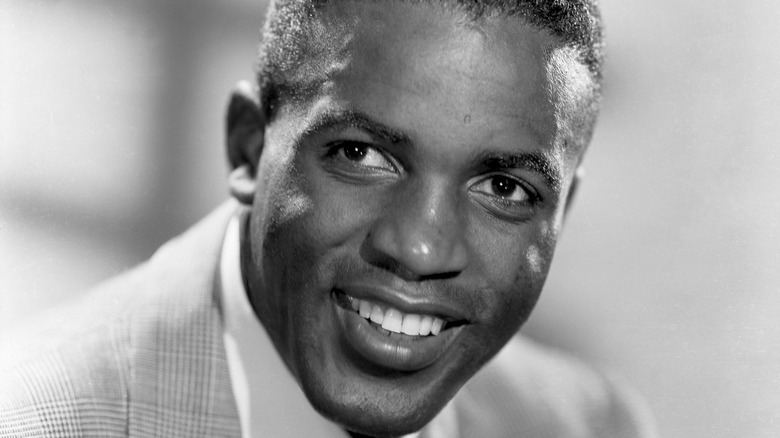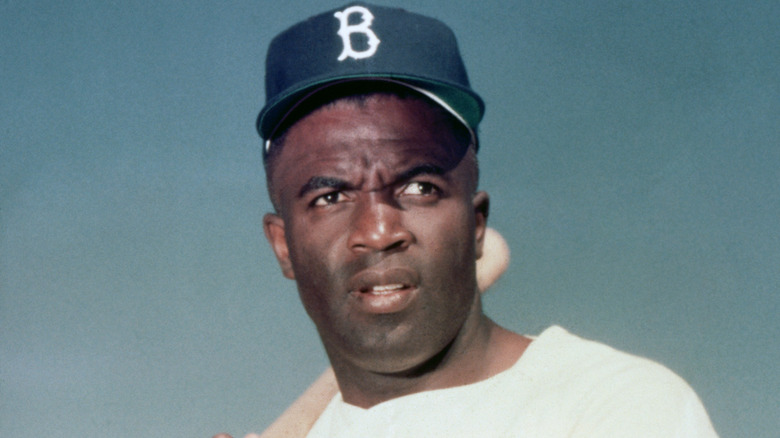Why Jackie Robinson Couldn't Compete In The Olympics
Baseball Hall of Famer Jackie Robinson is an unforgettable component of American professional sports. In addition to his greatest achievements in baseball, he integrated a segregated sport at the time when separate but equal laws were the norm. As a result, he also had to deal with racism in his career. In fact, he was specifically chosen to be the man that broke the color barrier because he could handle slurs being spewed at him "with honor and grace," notes The National Baseball Hall of Fame. Even with all those challenges, Robinson would go on to be one of America's baseball greats.
But just a few years before Robinson even joined his first baseball team, he had exceptional talents in another sport. When Robinson was in college, he was an accomplished multi-sport athlete. At the University of California, Los Angeles (UCLA), he played basketball, football, and track, in addition to baseball. While he played well in all the sports, he might have had an equally successful track career if the opportunity had turned out differently.
Following in the footsteps of his older brother, Matthew, nicknamed Mack (his middle name was MacKenzie, per Black Past), Jackie competed in track and field competitions at UCLA. Mack became a medalist in the 1936 Olympic games, the runner-up in the 200 meters and just a few seconds short of possibly beating Jesse Owens, who won the top medal that day, per University of Oregon.
Jackie Robinson's Olympic dreams get crushed
Mac's baby brother Jackie would have gone on to become an Olympian, too, but he did not have the chance to compete. Robinson did however get to play in National Collegiate Athletic Association (NCAA) competitions, setting a record as the only UCLA athlete ever to letter in four sports, according to NCAA. But when it was time for the Olympics, Robinson was out of luck, says History. And not for any injury, disqualification, or any other reasons one would think. Thanks to the start of World War II the year before, the Olympic Games of 1940 were cancelled. Four years later, the 1944 Olympics were also called off. Besides its global impact on nations and individuals, World War II also stood in the way of the world's premier sporting event by scrapping most of the 1940s from Olympic history (via Library of Congress).
The war had another impact on Jackie Robinson, who was drafted to serve in the Army from 1942 until 1944. When he was done serving he likely gave up on his running dreams, because he didn't go back to track. Instead he opted to play baseball and joined the Negro National league.
The Olympics wouldn't return until 1948, and by then, Robinson had already made history by becoming the first Black major league baseball player.

